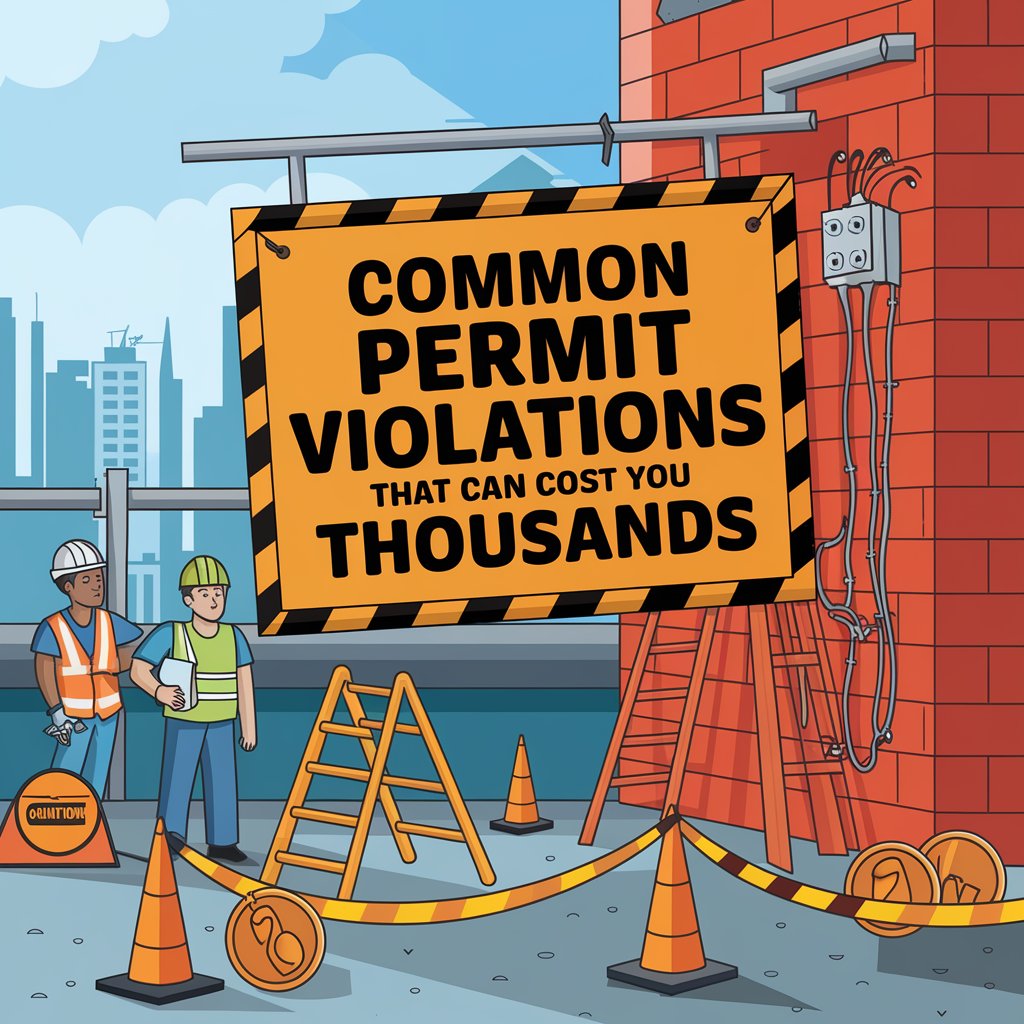Physical Address
304 North Cardinal St.
Dorchester Center, MA 02124
Physical Address
304 North Cardinal St.
Dorchester Center, MA 02124

Getting the right permits is essential for any home improvement project, yet many homeowners skip this step, which can lead to costly fines, delays, or even legal trouble. Permits are in place to ensure safety, structural integrity, and that your project meets zoning laws. Ignoring these requirements can throw off your budget and cause problems when it’s time to sell. To help you avoid these issues, here are some of the most common permit violations and tips on how to steer clear of them.
Many homeowners skip getting permits, thinking it’s a way to save time and money. But this can backfire big time. Unpermitted work can lead to fines, demolition orders, or even legal headaches if it doesn’t meet local codes. Plus, trying to sell a home with unpermitted additions can cause problems—buyers and lenders often want proof that everything’s up to code. Before you start any project, always check with your local permitting office. And don’t assume that small improvements are exempt—lots of seemingly simple updates still need approval.
Setbacks determine how close a structure can be built to property lines, roads, or other buildings. These rules are in place to prevent overcrowding, ensure proper drainage, and maintain emergency access. If you build too close to a property line, you could end up having to tear down or modify the structure, which can be both frustrating and costly. Before diving into any outdoor project—whether it’s a deck, patio, or fence—make sure to review your local setback requirements to avoid costly mistakes.
Electrical and plumbing work must meet strict safety standards to avoid hazards like fires, leaks, or structural damage. DIY installations without permits can fail inspections and might even void your homeowner’s insurance if something goes wrong. Many homeowners try to tackle small electrical or plumbing jobs themselves, only to discover that unpermitted work has to be redone by a licensed professional. If you’re hiring a contractor, always double-check that they’re securing the right permits to ensure everything is up to code and you’re covered for peace of mind.
Decks are among the most popular home additions, but if they’re not built properly, they can pose serious safety risks. Local building codes regulate crucial details like weight capacity, railing height, post spacing, and stair design. If your deck doesn’t meet these codes, you could face fines and, more importantly, create dangerous conditions for your family and guests. Many municipalities require detailed deck plans to be submitted for approval before construction begins. Working with a professional who understands these requirements can help you avoid violations and ensure your deck is both safe and durable.
When you’re doing a major renovation, adding new living space, or building an accessory dwelling unit (ADU), you’ll likely need an occupancy permit before the space can be legally used. This permit ensures the work meets safety and health codes, from fire safety to ventilation and accessibility. Failing to secure this permit can delay your move-in date, result in penalties, or even force you to vacate the property until it’s compliant. Always check with your local building authority to confirm if an occupancy permit is required before finishing any major project.
Many homeowners believe that smaller outdoor structures like fences and sheds don’t need permits, but that’s not always the case. Height restrictions, material rules, and setback regulations can all determine whether your structure is compliant. Violating these can lead to fines, citations, or even having to remove the structure. Don’t forget to consider any HOA restrictions as well. Before installing a fence, shed, or any other outdoor feature, check both your local building codes and any HOA guidelines.
Don’t risk costly permit violations—work with an experienced professional. I specialize in designing customized outdoor structure plans, including decks, porches, and sunrooms, that meet local building permit standards. With my expertise, you can move forward with your project confidently, knowing everything is designed to meet code requirements and pass inspections smoothly. Contact me today to start planning a project that ensures compliance, safety, and long-term value for your home.